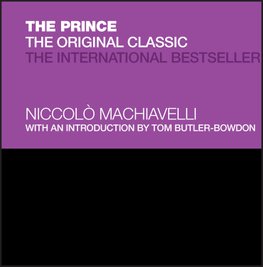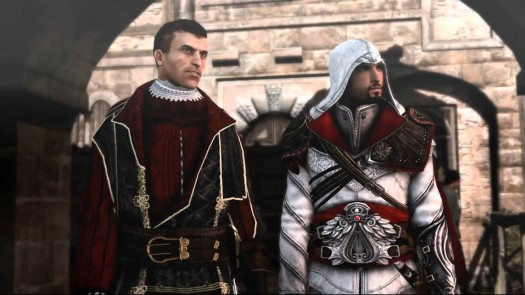 Personality has a lot to do with how we understand Niccolo Machiavelli. We have talked about how misunderstood the man may have been here on the blog many times. Recently I picked up a somewhat newer translation of The Prince with an introduction by Tom Butler-Bowdon and reading through Butler-Bowdon’s intro it only confirms my Neo-DeMarcoian thought–Machiavelli meant well, he must be read in context and he had a terrible press agent.
Personality has a lot to do with how we understand Niccolo Machiavelli. We have talked about how misunderstood the man may have been here on the blog many times. Recently I picked up a somewhat newer translation of The Prince with an introduction by Tom Butler-Bowdon and reading through Butler-Bowdon’s intro it only confirms my Neo-DeMarcoian thought–Machiavelli meant well, he must be read in context and he had a terrible press agent.
Some think of Machiavelli as being “bad”–the bedtime reading for Napoleon, Hitler, and Stalin. What if we take a minute and flip that thought–recent research focuses on Machiavelli’s ethics and the fact that he was a genuine moral philosopher and well-rounded Renaissance man whose overriding wish was to be useful.
The Prince then is best seen not as a guide on how to be ruthless or self-serving, but rather as a lens to see objectively the prevailing views of the day, and to open the eyes of the reader to the motives of others.
As we have re-examined The Prince–the piece is really aimed at the upstart who had seized power of their own devices and who must now keep and legitimize that power. This need to gain credibility and shore up support is what makes the book still highly relevant today–dare I say to new leaders and commanders (in fact in some places the word Prince and easily be replaced with leader or “commander”)–who owe their current position to hard work, not to patronage or being the scion of a famous family. Butler-Bowdon does a wonderful job in his intro on the why, the what, the where, and the how and wraps with a page on effective leadership.
 THE EFFECTIVE LEADER: According to Niccolo Machiavelli
THE EFFECTIVE LEADER: According to Niccolo Machiavelli
Strives by all their actions to inspire a sense of greatness and goodness: “Nothing makes a Prince (commander?) so well through of as to undertake great enterprises.”
Carefully chooses their heroes, and incorporates their best features into their own self. The great all rest on the shoulders of those who have come before.
Is perceived to be wise, just, and governed by higher moral laws.
Uses force or violence only if it is in the best interests of the state.
Is never wantonly cruel, which attracts hatred; those who hate are well motivated to kill you or have you removed
In never profligate with state funds. It is better to be tight with money at first, then receive gratitude for dispersing it when appropriate, than to spend lavishly and bankrupt the state, which soon leads to your downfall.
Understands that politics is as much about image as it is substance, and acts accordingly.
Is careful of flatterers, who inevitably provide incorrect pictures of the truth (see here Plutarch’s How to Tell a Flatterer from a Friend as well).
Has a handful of close advisers or fiends who are allowed to speak their minds without fear.
Consults widely, but is always seen to making up ones mind, since vacillation quickly erodes faith in your rule (command).
Backs what they say by force. A leader may be good or effective in all respects, but the perception of weakness is fatal to anyone in power.
Recognizes that Fortune is like a river that can be directed and channelled according to the structures we have put in place, and that one must work for things to go our way.
Bottom line: Give Machiavelli’s The Prince another read–I think you might agree–perhaps he was a bit misunderstood.


